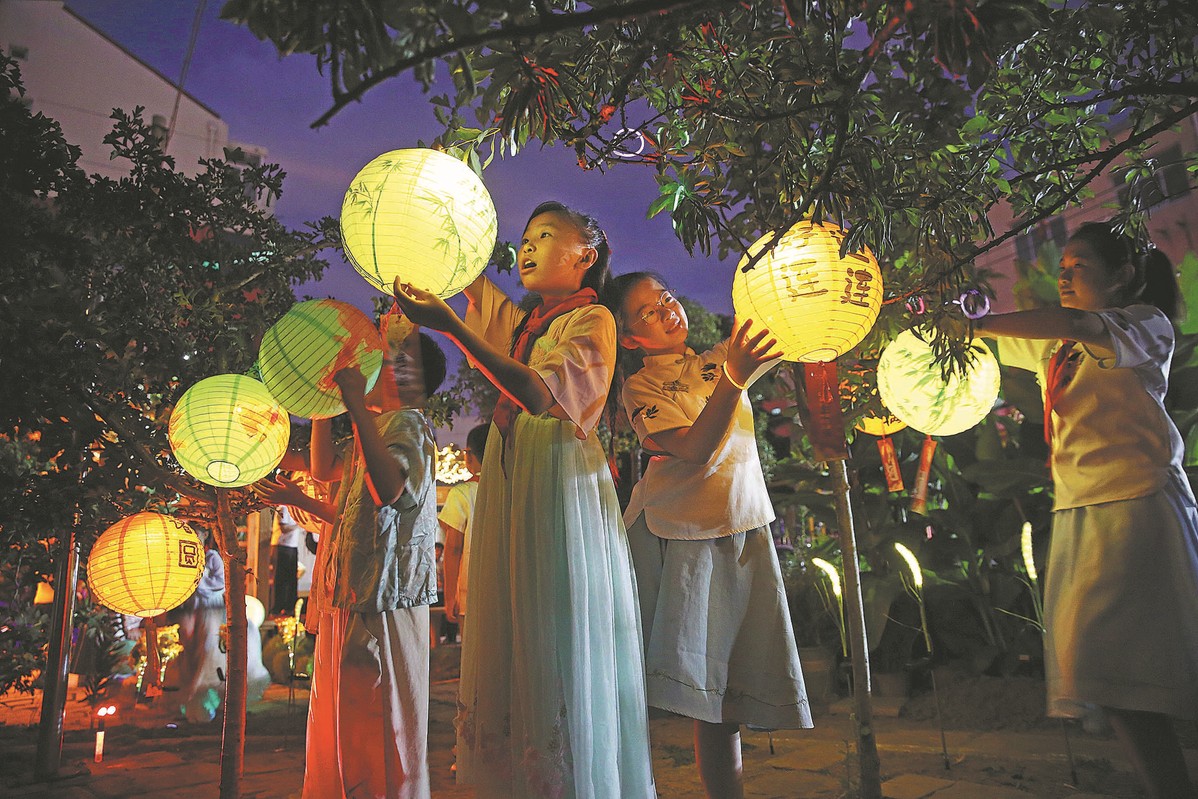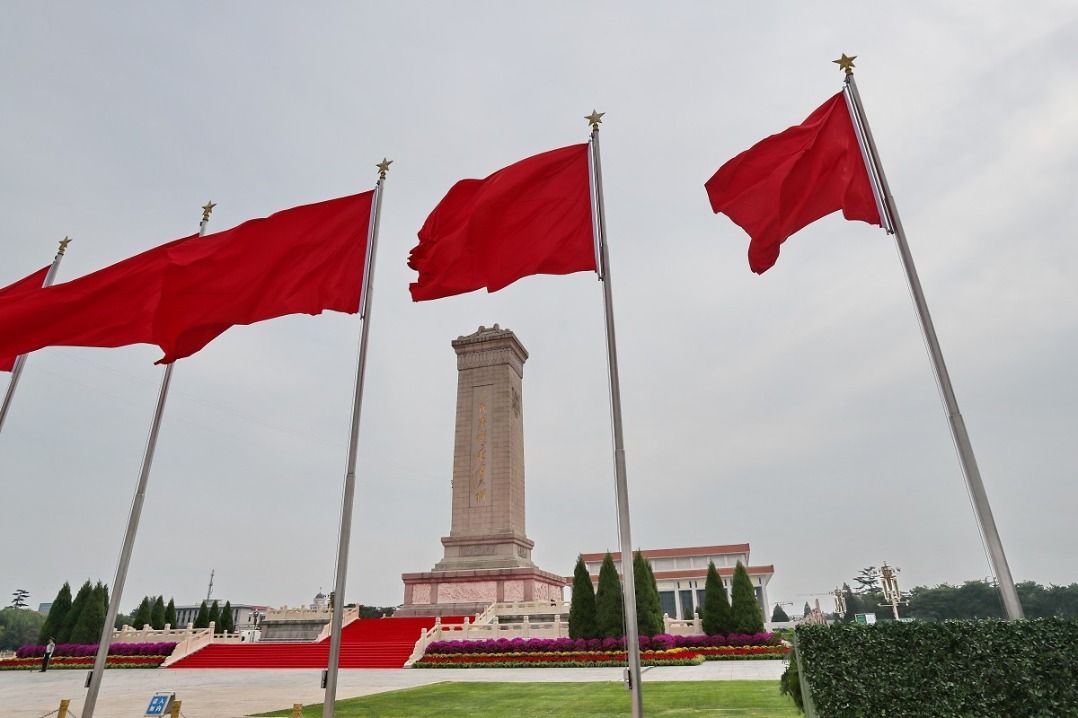A festival where the moon plays a shining role
Poetry has given the lunar light a special romantic and emotional significance


A translation by Nobel nominated Chinese writer Lin Yutang (1895-1976) conjures up a rich imagery:
Why does she, bearing us no grudge,
Shine upon our parting, reunion deny?
But rare is perfect happiness —
The moon does wax, the moon does wane,
And so men meet and say goodbye.
"It was in Michow (Mizhou), thinking of his absent brother, that he wrote what is considered the best poem on the mid-autumn by any poet. Critics say that after this poem was written, all the other poems on the harvest moon could be well forgotten," reads Lin's biography of Su, The Gay Genius: The Life and Times of Su Tungpo, originally written in English and published in 1948. Su Tungpo, or nowadays, Su Dongpo, is another name of Su Shi.
Su, a polymath and talented in literature, calligraphy and painting, rose to fame at a young age. Throughout his official career, he served in many places across the country and cared for the people. Legacies of his good deeds passed down through history.
Yet, a hopeless, righteous dissenter, he was promoted and demoted over and over again, experiencing a full play of fickleness in human relations.
"It was a matter of sustenance of the spirit to have on one's shelves the works of a man with great charm, originality, and integrity of purpose, an enfant terrible, a great original mind that could not conform," Lin wrote of Su, the mention of whom, as he put it, always elicits an affectionate and warm admiring smile in China.
In his life, Su created many works on the Mid-Autumn Festival.
His sole brother by his side, he wrote of the cloudless sky, cool air, the Milky Way and the moon round as a jade plate — a wonderful night of course, but not so often had Mid-Autumn Festival been like that, he thought, and the current happiness could not withstand the sorrow of the upcoming parting, nor could it declare a brighter future ahead of him.
The following year, the two brothers were parted on the Mid-Autumn Festival, and Su was not in a good physical condition. They exchanged poems written for each other by mail. Su's long poem described multiple images and emotions to the extreme, so as to comfort his brother.
Lin pointed out that it's striking that his brother always made the occasion for Su to write some of his best poetry.























